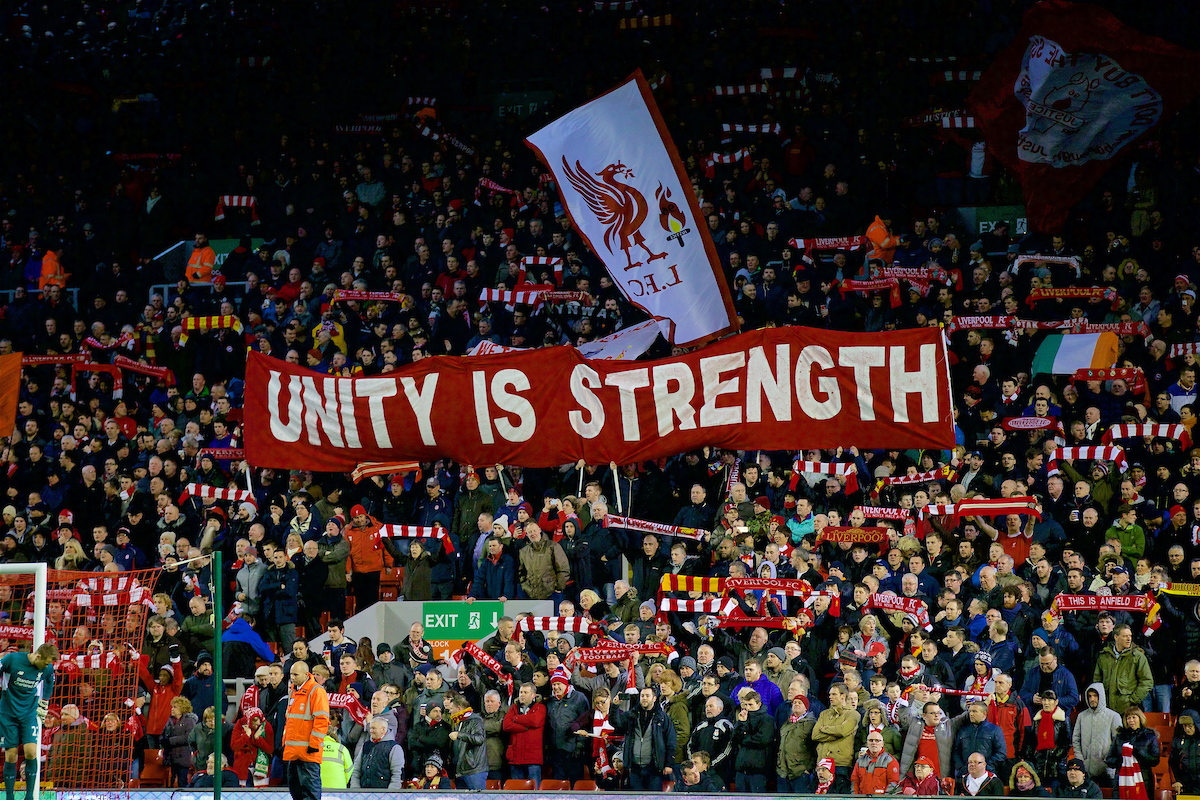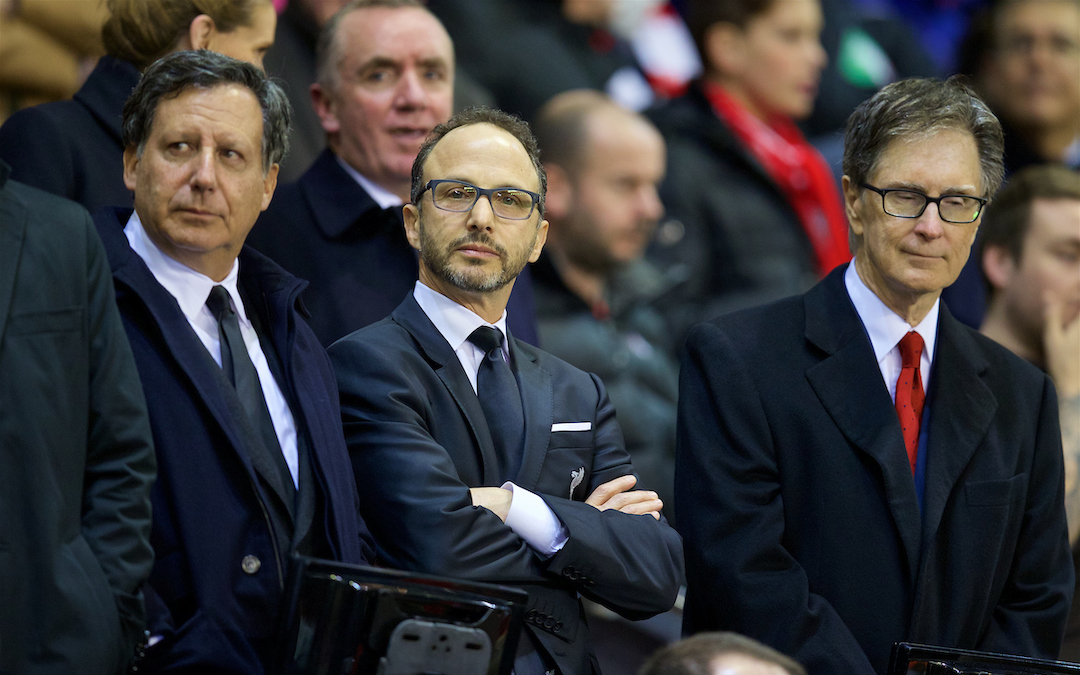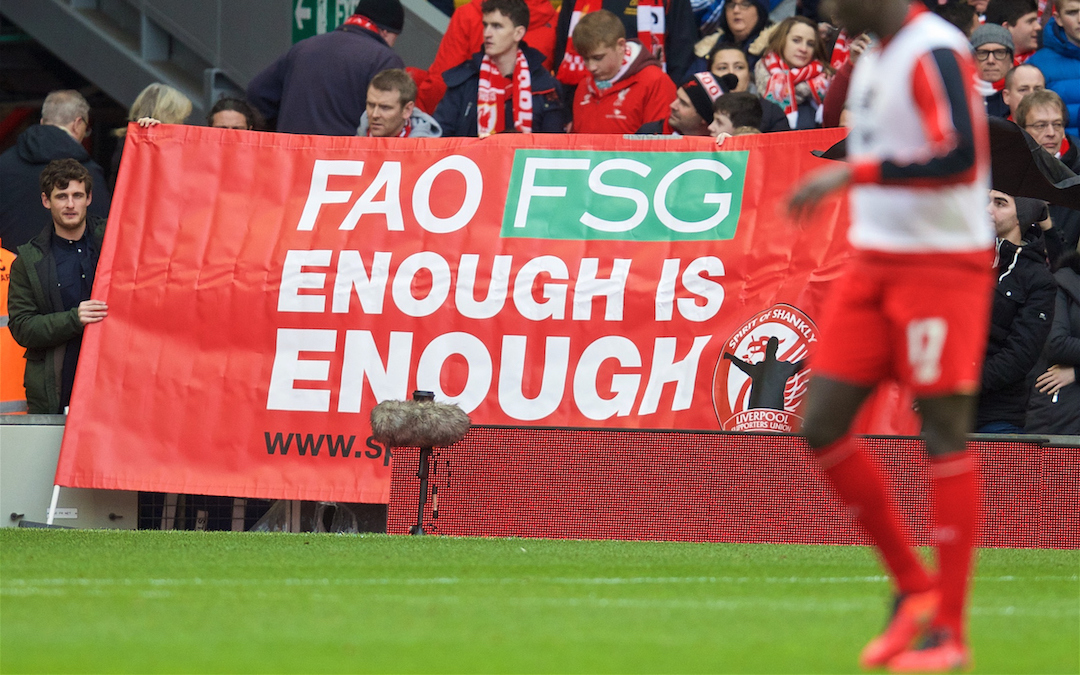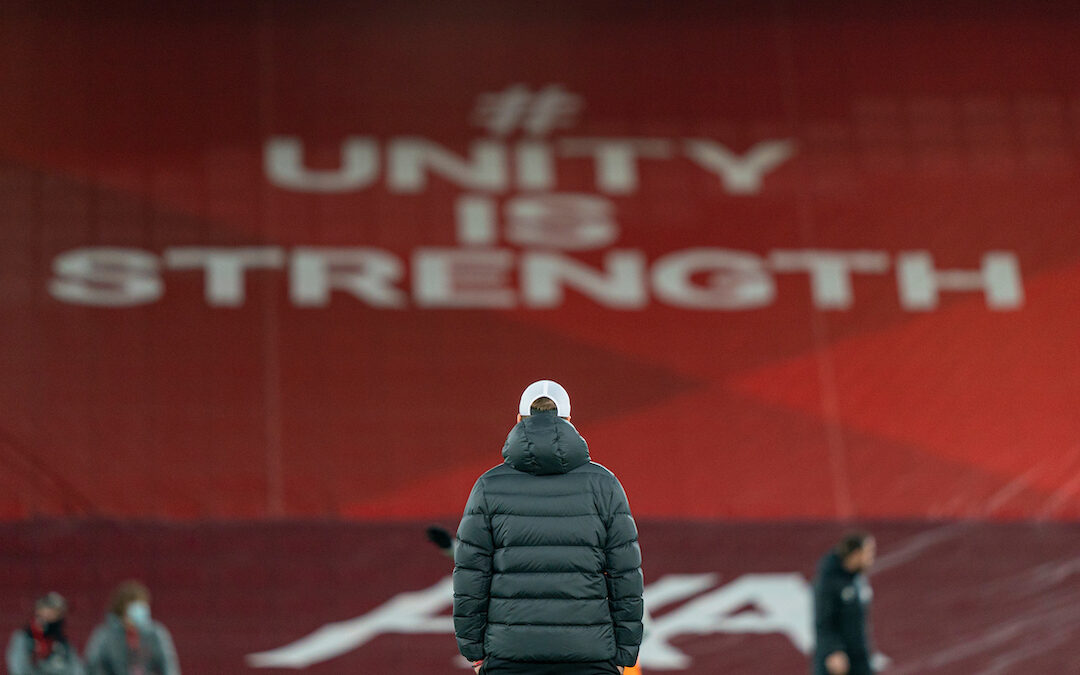After a season which threw just about everything it had to throw at us, Maria Hartless writes that supporters showed that unity is strength…
WHAT a turbulent few months in the world of football.
Looking back, it got me thinking of how the power of the people, if sparked, has and always will conquer the industry.
I laugh when I hear the opinion that football isn’t political. Football was established in British society as a ritual, which solidifies and symbolises the meanings and conceptual features of a particular culture. Traditionally, this is associated with working-class men.
As a life-long Liverpool fan, attending the match days with my dad, I’ve felt the baton of responsibility being passed down through the generations. Upholding the values and integrity of our beloved club. Fearlessness, pride and above everything else, hope.
The politics of football is enshrined in its history. The shared passion and belief that anything is possible, in a world where you are told you’re not good enough and programmed to believe that you won’t achieve in life because of your background.
It’s what makes the game so special. Football has the power to smash through that glass ceiling. An act as simple as a ball hitting the back of a net having the power to unlock a new dimension of hope and possibilities is truly poetic.
Nothing should ever come between the fans and the team. Success is achieved from working together. Just like in life; collaboration and mutual respect drives the best results. There is endless strength in unity. This has been proven, in the theatre of football, over these past few months.

We are all basking now in the success the current Liverpool team has supplied us with, but we have too been there watching Liverpool on rainy Saturday afternoons when we’re playing for finishing eighth in the league. I’ve got to admit; the passion and enthusiasm has dwindled in these times, I can’t lie. But I can say, hand on heart, I’ve never lost hope.
We have never lost hope. The identity of the team is strengthened from the unwavering support of the fans, diverse as we are. Anfield wasn’t built in a day. This turbulent journey is one that is shared amongst many football fans throughout the country.
Having those grim times makes you appreciate the smell of the flares and the sweet taste of the champagne so, so much more. The unwavering hope is what’s shared among all football fans around the world.
I’d never usually bond with a Manchester United fan about how many similarities we have. However, in these times where the fundamental identity of the sport we love has been compromised by the greed of the elite, the shared experiences and love we have for the game and the respect and mutual knowing that anything can happen on the pitch, is what overrides the bitter rivalry.
And it’s worth fighting for.
This togetherness is what is making these movements so significant. We have been fully prepared to hold our hands up and join together. The division between rivals has been outweighed by the division between fans and our clubs. We all agree that the treatment of our clubs is intolerable.
The tribalism of football fandom and the identity each club protects and upholds is what makes the game so unique in society. The introduction of the European Super League would have destroyed this overnight.

Capitalising through an elitist environment where only these clubs compete against each other, most probably in some decked out mutual stadium somewhere in Abu Dhabi, would mean nothing. How boring. How soulless. How absolutely unacceptable.
There is a common ideology shared among football fans that football can and should be used as a catalyst to challenge discrimination in all forms and promote alternatives to extreme capitalism.
It has been proven in recent years that the collective passion and shared desire of fans can achieve the intended goal. This was exemplified when the 2016 response to rising ticket prices reached a successful climax in the news. A campaign, which Liverpool fans played a vital part in, resulted in the Premier League introducing a price cap of thirty pounds on away tickets for all clubs.
This declaration offered some form of promise that football clubs and officials realised the tarnished relationships they have created with fans, and so wished to progress into a healthier and more just relationship together. This resonates now, as we come together to have our voices heard.
Now, there was literally no hiding from the fact that greed is the main contributor to the decision-making process of the owners. How dare they attempt to commodify our history and identity again. It belongs to us. The fans.
The recent announcement of the Government’s plan to introduce an ‘expert panel’ for a ‘fan-led review’ of football further demonstrates how much these people just don’t get it. Yet there is still hope, following the aftermath of the European Super League proposal, that fans’ voices are not only heard but recognised as a vital navigator in decision making.
Spirit of Shankly now has two representatives at board level at the club. This contractual agreement ensures that SOS has influence over club decisions and consultation rights. By fans working together with the club, it aims to remove the ‘us and them’ philosophy which has long existed in the game, as profit margins and commercial and globalisation has engulfed the nature of the sport.

However, the partnership that SOS and Liverpool Football Club has created will not challenge the commercial aspect of the club. This is recognised as a beneficial and needed model. The aim is to serve the communities that the club is part of and legally embed fans into the decision-making processes.
During these past few months, issues such as the ESL and trademarking ‘Liverpool’, were examples which tarnished the reputation of the club and strained relationships between the club and fans. By introducing the fan representation at board level, we are hopefully moving into a future where these situations will be avoided.
I’m optimistic to believe that the powers that be have realised that they need us, the fans, on their side. No matter how much money and investment they throw at the club, at the end of the day it is what spouts from the grassroots which holds the club and the team together.
This collaborative model could change the future of football and, like usual, Liverpool could lead as ambassadors of this and be followed by teams across the country.
The mystery of the football we love personifies the game itself. The unknown. The potential. The continued fight and hope that stems from grassroots football all the way up to the Champions League. Removing that journey, removes the soul of football.
Football fan identities have been ignited and this movement truly shows how the power of the people will always defeat the people in power.
Subscribe to TAW Player for more reaction to all the news and events that matter to you…
Recent Posts:












Good to see this article raise all the issues that are the ‘fallout’ from ticket prices, scheduling, administration. Money has improved the game b and of course the ESL. The big question coming out of all this for me is, who owns the game? The immediate response is, the supporters own the game and that is true. Perhaps we need to acknowledge that all involved in football own the game. Some of us are more concerned with protecting the game, others are more focused on making money. Money brings benefits but it is a double-edged sword. Hopefully more supporter input on how the game is managed will provide balance.